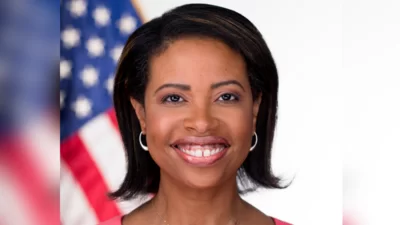Kristi Rodriguez, Senior Vice President of Nationwide Retirement Institute recalls reaching out in September 2020 to historically black colleges about working with a new partnership dubbed the Financial Alliance for Racial Equity (FARE).
“The people I spoke to said, ‘Thank you for calling and talking about how you’re going to drive systemic change and work with us on engaging students,’” Rodriguez told attendees of an online Special Committee on Race and Insurance panel discussion hosted June 10 by the National Association of Insurance Commissioners (NAIC). “They said a lot of companies had been calling and wanting to donate monetary amounts to HBCUs,” Rodriguez said, without any follow-through beyond a financial donation.
Nationwide has had a longstanding commitment to developing diverse talent, but the imperative to increase representation and equity became more urgent industrywide in recent years. That’s why FARE was formed in late 2020 when a group of nine leading financial services organizations, associations and six historically Black colleges and universities (HBCUs) joined together to initiate change by removing barriers that prevent diverse students and financial professionals from either entering the industry or advancing in their careers.
Over 150 people joined the NAIC conversation between Rodriguez and three other FARE representatives on a summer Friday afternoon, demonstrating the appetite for this topic.
Other panelists from FARE partners included Erinn Ford, Executive Vice President, Advisor Engagement at Advisor Group (the largest U.S. network of independent wealth management firms); Mike James, Executive Vice President, NFP (a leading insurance broker and consultant); and George Nichols III, President, The American College of Financial Services (an educational and credentialing organization).
Panelists discussed their personal connection to the work of diversifying the industry and what it means to them. Rodriguez is a graduate of an HBCU, Hampton University, but didn’t initially consider a career in an industry she was unfamiliar with.
“If you look at how we’ve traditionally recruited in financial services, we typically draw on friends and families,” Nichols said. “Well, you’ve just put Blacks at a disadvantage” he said, because they are much less likely to have family or mentors already in the business.
“Those who do get into the business often had to do their own research…they didn’t have people helping them with that,” Nichols added.
James recognizes the helping hand he got from John Hancock in the early 90s when that firm actively recruited and mentored him, he said.
“I was the first in my family to be presented with a white collar, professional opportunity,” James recalled.
Creating present and future opportunities and mentorship for others was the main focus of the group, though. Rodriguez announced FARE recently granted its first round of scholarship money to four Black women and three Black men, enabling them to take the next steps in their financial services careers through the CFP® Board’s Certified Financial Professional® program.
Nichols said he’d like to find a way to extend FARE’s impact down to the high school level to steer young people to the industry even before they start their college journey. And both Ford and James said their hope is that in 10 years’ time diversity, equity and inclusion have become an ingrained part of the structure of companies and organizations in the industry rather than separate departments or efforts.
Original source can be found here.



 Alerts Sign-up
Alerts Sign-up